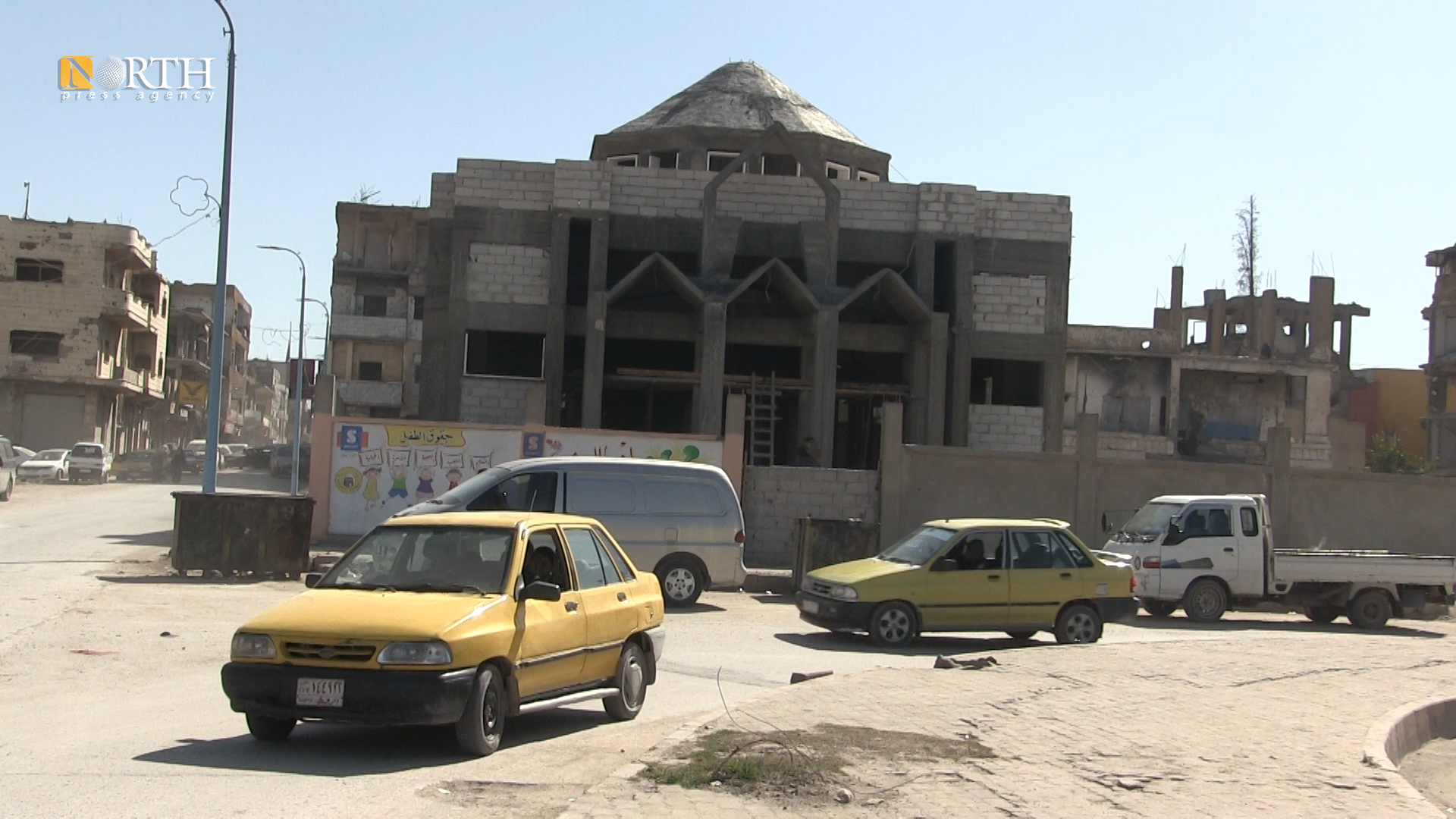
RAQQA, Syria (North Press) – Armenians returning to the city of Raqqa, north Syria, say that the reconstruction of destroyed houses is one of the most prominent challenges that faces returnees.
Raqqa has witnessed the return of a few Armenian families since the elimination of the Islamic State (ISIS) by the Syrian Democratic Forces (SDF), supported by the Global Coalition, in 2017.
Tough Era
Hackob Sarkisyan (a pseudonym), a 64-year-old spare parts storekeeper in the industrial zone of Raqqa, said that the number of Armenian Orthodox in the city before ISIS was 80 families.
Most of the families’ members were working in government jobs, in addition to some who mastered industrial works.
ISIS imposed tough conditions on the residency of Armenians and Christians in general in the region.
“We either convert to Islam, pay jizya (a tax paid by non-Muslims), or leave Muslims’ countries,” according to Sarkisyan, who stayed in Raqqa and paid jizya to keep his properties.
He told North Press that after his family was displaced to Aleppo, he was forced to pay 17 grams of gold annually over three years of ISIS’ control between 2014 and 2017.
However, the majority of Christians and other minorities fled Raqqa when they had to choose between embracing Islam, paying jizya, or leaving under penalty of death.
Destroyed churches
Sarkisyan believes that the idea of returning to the city is far from the minds of some Christians, because they lost their connection with the city after the destruction of their churches and the imposition of the strict Islamic character on the city by armed groups and ISIS.
Raqqa was famous for its national and religious diversity and the coexistence of different communities including Kurds, Arabs, Chechens, Circassians, and Armenians.
The population of Raqqa is increasing day by day, as more than 400,000 citizens now reside in it, according to the People’s Municipality of the city.
The Religious Affairs Foundation in the Raqqa Civil Council is currently working to reconstruct the al-Shouhada’ (Martyrs’) Armenian Catholic Church.
In 2014, ISIS turned the church into a Dawah (the act of calling people to embrace Islam) office after removing the Christian religious symbols and replacing them with its own slogans. The churches were completely destroyed during the battles between the SDF and ISIS in 2017.
Destroyed houses
Some returnees say that the Armenian property owners or who work in the industrial zone have returned, while others who depend on government jobs stayed in government-held areas in Aleppo, Damascus, and other Syrian cities.
Mary (a pseudonym), a 65-year-old Armenian woman, said that most of the Armenian Catholics who fled Raqqa during ISIS have not returned.
“Some of my relatives reside in government-held areas, while others emigrated to European countries,” she added.
She believes that the destruction which affected her house and other houses “does not tempt us to return.”
Some believe that some displaced Armenian families will return if some institutions help them reconstruct their ruined houses, especially with the current stability of the security situation.
Umm George, a 72-year-old Armenian Catholic woman, said that the number of families have who returned to the city is about 35.
She agrees with Mary that those who returned are owners of properties, businesses, and capital, while the employees and those with limited income did not return because they cannot afford to rebuild their homes.
She says the reason that Armenian families stay in major cities is to “pursue their children’s education in universities and their commitment to their jobs.”
